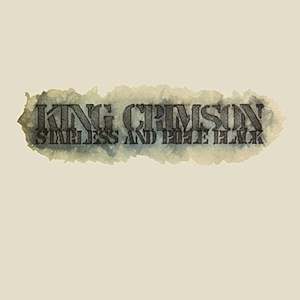
Thankfully, for Crimson’s sixth long-player, ‘Starless and Bible Black,’ which was released on March 29, 1974, they had found some measure of stability around Fripp, bassist/vocalist John Wetton, drummer Bill Bruford, multi-instrumentalist (violin, viola, keyboards) David Cross, and lyricist Richard Palmer-James, whose unorthodox wordplay capably filled the role vacated by Fripp’s longtime foil, Peter Sinfield.
Musically, though, King Crimson’s restless experimenting continued thanks to a renewed focus on improvisation that saw all but two of the new album’s songs recorded live in concert, then overdubbed and cleansed of crowd noise in the studio. Both of those studio-only creations kicked off ‘Starless and Bible Black,’ whose title was an allusion to Dylan Thomas’ ‘Under Milk Wood.’ The first melded skittish tempos and drastic soft/hard dynamics with a beautifully ethereal interlude lasting mere seconds, while the second, by comparison, opened gently and plainly, sweetened by Cross’ violin, but soon embarked towards darker realms on an ominous Wetton bass line.
Wetton’s instrument also starred alongside subversive guitar interjections across the understated ‘We’ll Let You Know,’ which then gave way to lusher, almost Spanish-flavored chords on ‘The Night Watch,’ a minimalist, virtually percussion-free instrumental (one of many) in ‘Trio,’ and finally static-encrusted lounge jazz for ‘The Mincer.’ And that was just side one.
The second half of ‘Starless and Bible Black’ bowed under the daunting weight of two epic instrumentals averaging ten minutes – edited down from their concert originals — of wanton improvisation. The title track slowly gained intensity around Fripp’s distorted, dive-bombing guitar-strangling until finally locking into a steady groove five minutes in, and then gradually decomposing again. By Fripp’s own admission, ‘Fracture’ challenged even his abilities with its complexity, and yet, the tight interplay between all involved throughout the song’s protracted ebb and flow is on display.
Read on... |


No comments:
Post a Comment